Brian Eno
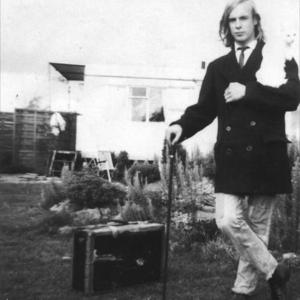
- Genres:
- Avant-Garde, Classical, Electronic, New Age, Pop/Rock
- Meta styles:
- Alternative/Indie Rock, Ambient, Art-Rock/Experimental, Avant-Garde Music, Experimental Electronic, Hard Rock, Modern Composition, Punk/New Wave, Space
- Styles:
- Art Rock, Experimental, Experimental Rock, Glam Rock, Proto-Punk
Brian Eno (born Brian Peter George Eno 15th May 1948 in Woodbridge, Suffolk - later adding St John le Baptiste de la Salle to his name) is a British self proclaimed 'non-musician', who has made contributions to the music community as an instrumentalist, composer, record producer, music theorist and singer. He's commonly regarded as the father of ambient music, although he has worked in many genres and fields of music throughout his career.
Eno first came to prominence as the keyboard and synthesizer player and general sonic wizard in the glam rock and art rock band Roxy Music. After leaving Roxy Music, Eno recorded four highly idiosyncratic and original rock albums, later turning to more abstract sound-scapes on subsequent albums such as 1975's Discreet Music and 1978's Ambient 1: Music for Airports. Since then, he has released dozens of albums (many in collaboration with like-minded musicians, such as Harold Budd and Robert Fripp) which demonstrate his unique approach to music. He has, however, occasionally returned to the pop idioms which were more prominent in his earliest work.
His production credits include some of the most respected albums by Devo, Talking Heads, U2, Laurie Anderson, Paul Simon and Coldplay.
Contrary to popular belief, Brian Eno did not produce David Bowie's popular Berlin Trilogy (Low, Heroes, and Lodger). He performed and co-wrote tracks on all three albums, but they were produced by Tony Visconti. He did, however, co-produce Bowie's 1995 1. Outside. He also produced three of the Talking Heads most acclaimed albums, More Songs About Buildings and Food, Fear of Music and Remain in Light. Talking Heads' front-man David Byrne has worked collaboratively with Eno on the albums My Life in the Bush of Ghosts released in 1981, which has been described as "[a] pioneering work for countless styles connected to electronics, ambience, and Third World music", and recently in 2008 on Everything That Happens Will Happen Today, which blends electronic and gospel music and was released without the use of a record label.
Eno has also pursued several artistic ventures parallel to his music career, including visual art installations, a regular column in the newspaper The Observer and, with artist Peter Schmidt, "Oblique Strategies", a deck of cards used in finding various artistic strategies which has been used by Eno since early in his career.
- Sort by

Aurum
- Year:
- 2025
- Tracks:
- 11
- Bitrate:
- 320 kbps

Eno (Original Motion Picture Soundtrack)
- Year:
- 2024
- Tracks:
- 17
- Bitrate:
- 320 kbps
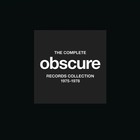
The Complete Obscure Records Collection 1975-1978 CD3
- Year:
- 2023
- Tracks:
- 4
- Bitrate:
- 320 kbps
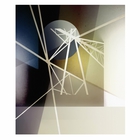
ForeverAndEverNoMore (Forever Voiceless Edition) CD2
- Year:
- 2023
- Tracks:
- 10
- Bitrate:
- 320 kbps
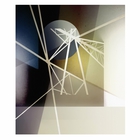
ForeverAndEverNoMore (Forever Voiceless Edition) CD1
- Year:
- 2023
- Tracks:
- 10
- Bitrate:
- 320 kbps
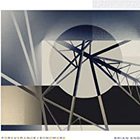
ForeverAndEverNoMore
- Year:
- 2022
- Tracks:
- 10
- Bitrate:
- 320 kbps

Luminous (With Roger Eno)
- Year:
- 2020
- Tracks:
- 7
- Bitrate:
- 320 kbps

Rams (Original Soundtrack Album) CD1
- Year:
- 2020
- Tracks:
- 6
- Bitrate:
- 320 kbps

Rams (Original Soundtrack Album) CD2
- Year:
- 2020
- Tracks:
- 5
- Bitrate:
- 320 kbps
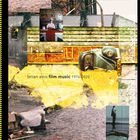
Film Music 1976 - 2020
- Year:
- 2020
- Tracks:
- 17
- Bitrate:
- 320 kbps
 Bill Nelson 182
Bill Nelson 182 Cluster 26
Cluster 26 David Toop 8
David Toop 8 Kraftwerk 73
Kraftwerk 73 Popol Vuh 29
Popol Vuh 29 Ryuichi Sakamoto 56
Ryuichi Sakamoto 56 Bill Laswell 59
Bill Laswell 59 Bryan Ferry 44
Bryan Ferry 44 David Bowie 291
David Bowie 291 Edgar Froese 14
Edgar Froese 14 Gavin Bryars 10
Gavin Bryars 10 Hector Zazou 13
Hector Zazou 13 Laurie Anderson 21
Laurie Anderson 21 Nico 19
Nico 19 Richard Barbieri 11
Richard Barbieri 11 Robert Wyatt 28
Robert Wyatt 28 Steve Hillage 40
Steve Hillage 40 Björk 82
Björk 82 Conrad Schnitzler 26
Conrad Schnitzler 26 Daevid Allen 14
Daevid Allen 14 David Sylvian 49
David Sylvian 49 Franco Battiato 29
Franco Battiato 29 Jah Wobble 47
Jah Wobble 47 Kate Bush 74
Kate Bush 74 Kevin Ayers 49
Kevin Ayers 49 Laraaji 18
Laraaji 18 Peter Gabriel 107
Peter Gabriel 107 Philip Glass 100
Philip Glass 100 Phill Niblock 4
Phill Niblock 4 Vangelis 83
Vangelis 83 woo 3
woo 3 Adrian Sherwood 5
Adrian Sherwood 5 Aphex Twin 47
Aphex Twin 47 David Gilmour 31
David Gilmour 31 Deuter 43
Deuter 43 Eroc 2
Eroc 2 Hugo Largo 2
Hugo Largo 2 John Cale 48
John Cale 48 Klaus Schulze 269
Klaus Schulze 269 Penguin Cafe Orchestra 13
Penguin Cafe Orchestra 13 Peter Hammill 83
Peter Hammill 83 Slapp Happy 6
Slapp Happy 6 Sparks 69
Sparks 69 Stephan Micus 27
Stephan Micus 27 Orb 5
Orb 5 Tim Story 21
Tim Story 21 William Orbit 21
William Orbit 21 Africa Express 2
Africa Express 2 DEVO 55
DEVO 55 Eraldo Bernocchi 4
Eraldo Bernocchi 4 Be-Bop Deluxe 9
Be-Bop Deluxe 9 Lou Reed 86
Lou Reed 86 Scott Walker 33
Scott Walker 33 Syd Barrett 18
Syd Barrett 18 Todd Rundgren 79
Todd Rundgren 79